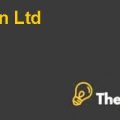
Interviewee: hello sir!
Interviewer: hello! Have a seat. Tell me something about yourself?
Interviewee: my name is Albert Alpachino. I have done my masters in marketing and finance from IVEY University. I was working with Bekaert textiles USA for last 2 years after my graduation from high school.
Interviewer: so why did you left your last job?
Interviewee: I could not see growth in my last job and on the lighter side I was looking for a better opportunity than that.
Interviewer: what was your job responsibility at Bakaert textiles?
Interviewee: sir! I was responsible for the smooth movement of work at the factory, to coordinate with different departments and to look for the efficiency in production. I was also the supervisor for the procurement of yarn.
Interviewer: what do you check to qualify the quality of yarn?
Interviewee: there are some quality measures in checking of yarn. I used to check its weight, density and strength.
Interviewer: what do you know about the process of making cloths?
Interviewee: there are different processes involved in making of cloth. It starts from procurement of cotton, then sending that cotton for blending after that carding, crossing, hardening, fulling, washing and calendering. Other steps can be added as per the requirement of the company.
Interviewer: why Patagonia decided to eliminate conventionally grown cotton? What was the cause of this decision?
Interviewee: Patagonia was looking for more efficient ways of producing cotton, so they came up with this research that organic cotton has more yield than the conventionally growing cotton. More over the most important thing was that the adverse effects of organic cotton are far more less than the conventionally grown cotton.
Interviewer: what costs were associated with this for the organization?
Interviewee: cost associated with this for the organization increased by about 30% because the supply of organic cotton was limited. This increased the cost of making cloths as cotton is the main input and is 50% of the cost.
Interviewer: what were the key reasons that Patagonia decided to make a switch to organic cotton?
Interviewee: the key reasons for the change were that organic cotton have more yield than conventionally grown cotton and in the process of conventionally grown cotton more chemicals and pesticides were used than organic cotton. The effect on environment can be reduced by growing organic cotton, which ultimately reduces the contamination of soil and water.
Interviewer: how can you be helpful to us in making this company sustainable in the industry?
Interviewee: the basic drawback of this industry is the conventional use of machinery and process. New methods should be adopted to increase the production and make the process efficient. Procurement process should be strict towards the quality of cotton and yarn. If the quality of cotton and yarn would be good, the output cloth will be of high quality. My experience in procurement will help the company sustain in the industry.
Interviewer: ok that’s all from my side. If you have any queries you can ask.
Interviewee: no! Thank you sir for your time. It was really nice to meet you.
Interview session no.2
Interviewee: hello sir!
Interviewer: hello! Come in and have a seat. Tell me something about yourself?
Interviewee: sir! My name is Caitlyn stark. I am from California and I have completed my master’s in Business Administration from Uganda Christian University this year.
Interviewer: what do you know about the textile industry?
Interviewee: sir! I was doing internship in Rock land industries. My period of internship was very informative. That company includes all the processes from procurement of cotton to the final product which was a fine quality of cloth.
Interviewer: what do you know about the organic cotton?
Interviewee: because of my internship at Rock land industries, I am pretty much aware of organic cotton. This involves the natural farming of cotton plants which involves intensive labor work. It is 100% cotton which do not involve the use of chemicals that can harm the soil and water.
Interviewer: what is the major pesticide that is seeping into our environment?
Interviewee: atrazine is the name of that pesticide which is seeping into our environment. These pesticides are causing reproductive problems in frogs and their survival is in danger due to this pesticide.INTERVIEW SESSION Case Solution
Interviewer: what is the environmental impact of fast fashion on the environment?
Interviewee: fast fashion means rapidly or fast changing fashion of cloths. Due to this fast change in fashion, people just throw the unwanted clothes to trash. These cloths are then dumped somewhere on the ground, which pollutes the environment because these cloths are made up of synthetic, inorganic materials. Due to the large demand of fashionable clothes the industrial process has changed which involves use of chemicals due to which more carbone mission takes place...................
This is just a sample partial case solution. Please place the order on the website to order your own originally done case solution.












